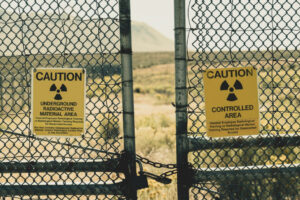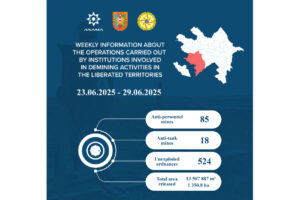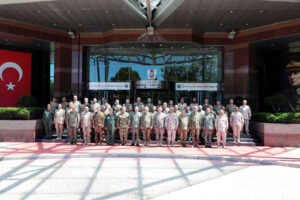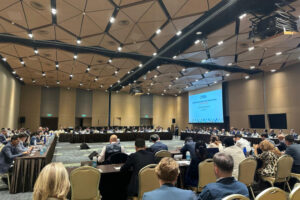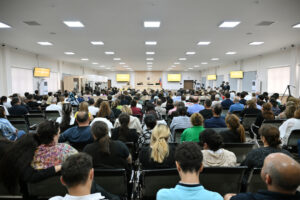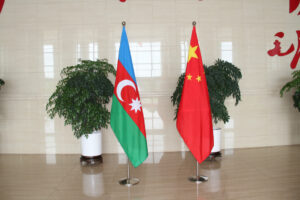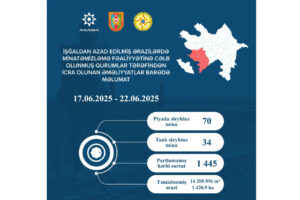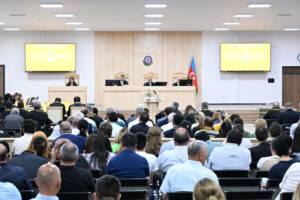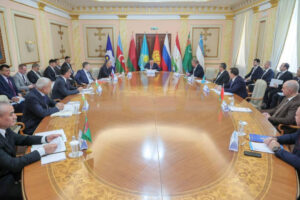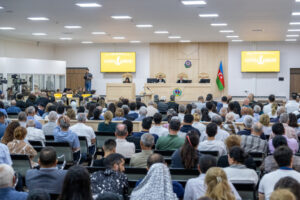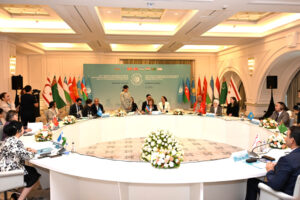Tokyo, 11 April, /AJMEDIA/
Russia’s invasion of Ukraine has become a “symbol” of the end of the post-Cold War era, forcing the international community to face a “historical inflection point,” Japan’s Foreign Ministry said in its annual policy report released Tuesday.
In the 2023 Diplomatic Bluebook, Japan also showed a tougher stance against China, which has boosted its maritime military activities in the Indo-Pacific region. For the first time, it pledged in the report to deepen cooperation with “Global South” nations.
The report said that “the trend of international collaboration” has been weakening globally despite being reinforced after the end of Cold War in 1989, but it also said cooperation is needed now to counter Russia’s aggressive actions against Ukraine and other global issues, including climate change.
Japan warned that cases of diplomatic tension and confrontation across the world could escalate against a backdrop of international dysfunction, creating a situation where “international relations are intertwined in a complex way with confrontation, competition and cooperation.”
The report was unveiled as the rift between major developed democracies and the Russia-China camp has been intensifying, represented by the dysfunction of the U.N. Security Council in addressing the war in Ukraine, waged by Moscow in February 2022.
Russia and China are two of the U.N. Security Council’s five permanent members with veto power, along with the United States, Britain and France, which have been imposing punitive economic sanctions on Moscow over its aggression against its neighbor.
Some countries have been “strengthening their challenging attitudes to the existing international order, based on their unique views of history and values and self-assertiveness,” the bluebook said, apparently lambasting China and Russia.
In the report, Japan also adopted a stricter position against China, calling the ruling Communist Party’s diplomatic policies and military developments “the greatest strategic challenge.” In the 2022 edition, Tokyo said they are “strong security concerns.”
Fears have been mounting over China’s possible use of military force against Taiwan, a self-ruled democratic island that Beijing regards as a renegade province to be united with the mainland, by force if necessary.
The bluebook said Tokyo will closely monitor joint military exercises between China and Russia near Japanese territory, conducted “at an increasingly frequent pace.” It is the first time Japan has voiced anxiety about the two countries’ military ties in the report.
The paper, meanwhile, said the Global South, a term that collectively refers to developing nations in areas such as Asia, Africa and Latin America, has become more significant in the wake of the Ukraine crisis as they have tried to avoid taking sides.
“It is extremely important to cooperate with as many emerging and developing countries as possible in a comprehensive manner that would overcome the differences of values and interests under multilateralism,” the report said.
On South Korea, the bluebook said the nation is an “important neighboring country” to Japan, and did not use an expression seen in last year’s edition that said the bilateral relationship is “in an extremely difficult situation.”
The change reflects recent moves toward rapprochement following South Korea’s solution proposal announced in March to its long-standing dispute with Japan over a wartime labor compensation issue that had soured ties between the Asian neighbors.



